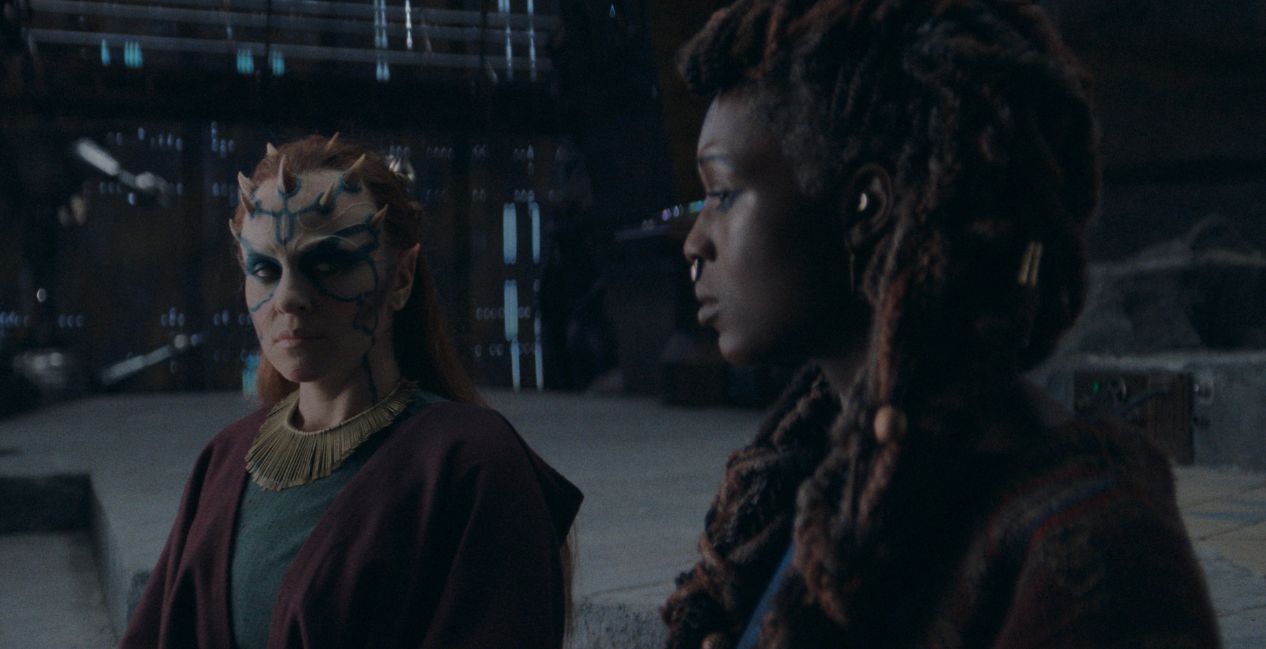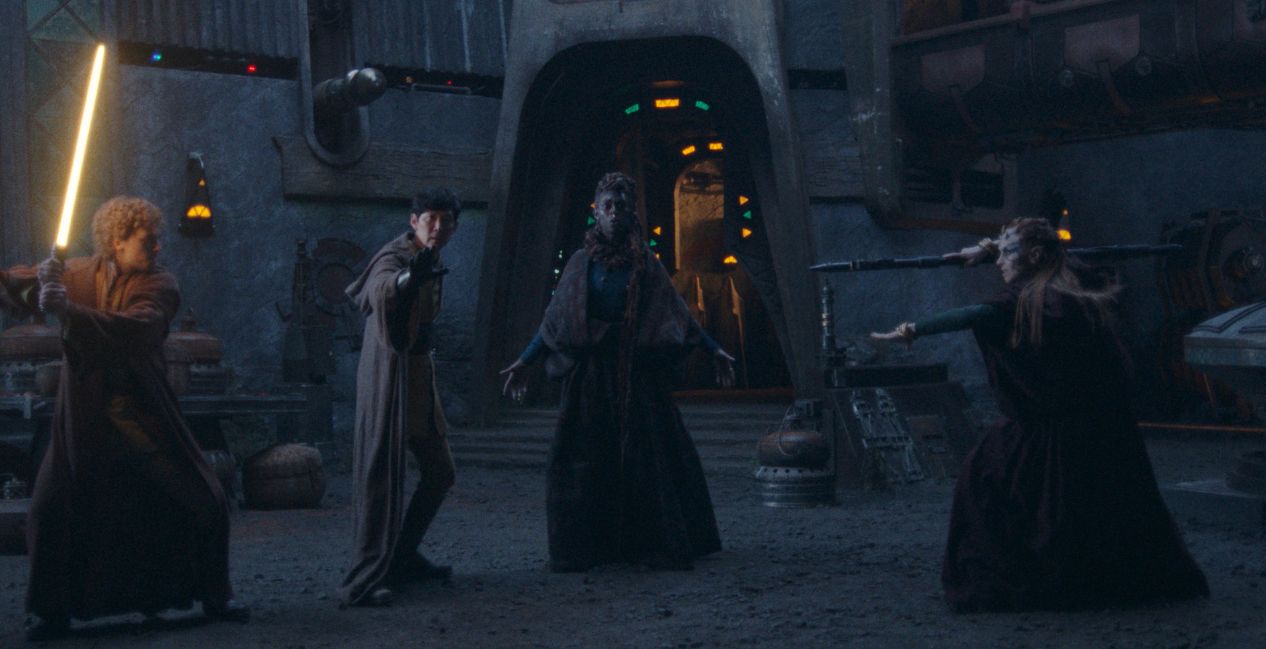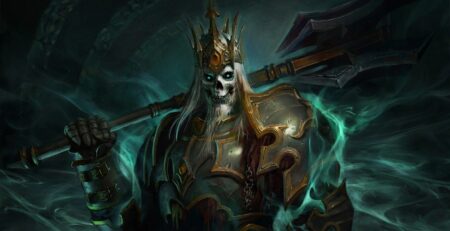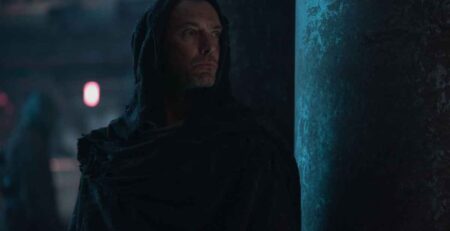In the last three episodes of season 6 of The Clone Wars, Yoda embarks on the path to becoming a Force Ghost. A power that makes one more powerful than anyone could imagine. At the Wellspring of Life, the source of Midichlorians, Yoda meets five Force Priestesses who tell him that to complete this training, he must start with good intentions and Light in his heart. However, The Acolyte Episode 7 shows us that noble intentions are only the first step on the path of Light. Without conquering your own fear and hubris, actions can have drastic effects on the galaxy, especially for the Jedi. When children are involved, the consequences are even more significant.
The Acolyte Episode 7 brings fans back to that infamous night on Brendok, this time from the perspective of the Jedi. Before the Jedi even meet the witches, it is established that their appearance on Brendok was purely for research purposes. This highlights their initial noble intentions. During the High Republic Era, before they were generals in the prequel trilogy and all but extinct in the original trilogy, the Jedi were on the front lines of galaxy exploration.
Master Indara (Carrie-Anne Moss)’s assignment to an outpost in the outer rim in the series’ first episode exemplifies this. Fans of the High Republic era are all too familiar with the Great Hyperspace Disaster caused by the Nihil’s terrorist attack. The event saw multiple systems in ruin and was a major blow to the Jedi Order of the time. Even 100 years later, the galaxy still feels its effects.
Star Wars has always been about perspective. Obi-Wan Kenobi says as much in the original trilogy when he lies to Luke Skywalker about the truth about his father. The Acolyte Episode 7 is no different, providing the Jedi’s side of the story on Brendok. During their research for a potential Force vergence, Sol (Lee Jung-jae) stumbles upon Mae and Osha (Amandla Stenberg), as seen in the opening of The Acolyte Episode 3.
Here, Sol witnesses Mae using her Force abilities against the local fauna in secret. From this moment, Sol’s perspective on Osha and Mae is set, seeing Mae, from his perspective, as not leading with noble intentions. More importantly, as he follows the twins back to the coven, he fears for their safety. This fear clouds Sol’s judgment and leads to the same attachment that would cause other Jedi like Anakin Skywalker to fall over a century later.

At his core, Sol just wants to do what’s best for Osha, who clearly wants to become a Jedi, unlike her sister. As “Choice” continues to parallel the events from the Jedi’s perspective, Master Indara appears to be the only voice of reason. While Jedi like Ki-Adi-Mundi need to report to the Council, adhering to the Jedi Code, Indara sees the bigger picture, understanding that their involvement shouldn’t influence the future of those who do not desire to be influenced, echoing sentiments similar to the Prime Directive in Star Trek.
Master Indara’s Padawan, Torbin (Dean-Charles Chapman), shows that the Jedi may not always make the best choices when selecting who to train. Torbin is easily influenced by the witches’ mind powers. Through this, they take advantage of his desire to return home to the comforts of Coruscant, showing that not everyone is cut out to be a Jedi, especially when exploration and research are at the core of the Jedi’s mission for the Republic.
It raises questions about how the Jedi select their pupils. Perhaps the choice is the most crucial part of the journey. Through notable Jedi like Ezra Bridger, Rey Skywalker, and Luke Skywalker, we see that age is but a small factor in following the path of the Jedi. Intention and perspective are essential, but conquering one’s fear is far more critical whether you are a child or an adult.
The witches of Brendok know this, and Mae says as much in The Acolyte Episode 7. The sacrifice they mention may not be a physical one but the emotional sacrifice of defeating your own fear and hubris. This is why Yoda’s first trial, after committing to good intentions, is to defeat his own hubris and fears. It’s the only way to ensure that noble intentions lead to a greater good. Anything else leads to heartbreak and pain, as the episode so beautifully displays. It is a lesson constantly revisited through the most prominent Jedi in the franchise.
While many have been waiting for the Jedi to be the clear antagonist on that night on Brendok, it all comes back to perspective. None of the Jedi that night acted with anything but noble intentions. However, their perspective warped their reality, leading to ill-informed decisions. Perhaps with more time and conversation, the events would have been different, but with such deep-seated beliefs about who should control the Force, even the most devout Jedi with good intentions can make choices that hurt so many.

Mother Koril (Margarita Levieva) also demonstrates how fear can blind one’s judgment. Her fear of the Jedi and their potential influence over Mae and Osha leads her to make decisions that escalate the conflict. Despite her wisdom and power, Koril’s inability to conquer her fear results in actions that mirror the Jedi’s mistakes, highlighting that the struggle against fear is universal. This parallel between the Jedi and the witches underscores The Acolyte Episode 7‘s theme that true mastery of the Force—and one’s destiny—requires overcoming internal fears and biases.
Throughout the season, the pacing has been a point of contention. However, in The Acolyte Episode 7, the pace only adds to the anticipation as the truths are revealed. The episode entirely changes the series’ scope and pushes viewers to revisit every detail of the Jedi’s interactions with Mae and Osha throughout the season. As the finale approaches, the lines between right and wrong have never been more blurred. While the Jedi remain a symbol of hope and light, the series shows how their own hubris leads them to believe their path is absolute.
As the series has done throughout the season, there are plenty of narrative threads to dig deeper into as the finale approaches. Notably, Qimir’s involvement. Mentioned early in The Acolyte Episode 7 is the fact that the witches have come to inhabit an old mining facility. Given Qimir’s use of cortosis and its connections to mining facilities in the current canon, it is entirely possible for Qimir or another dark side user to have influenced these events. Additionally, the witches of Brendok’s philosophy of being truly open to emotions and desires are eerily similar, making for a finale that will hopefully connect all the dots.
Creator Lesyle Headland and The Acolyte Episode 7 director Kogonada have a finger on the pulse of what Star Wars is all about, delving beyond the surface of the Chosen One narrative. They explore deeper themes of responsibility and the importance of being true to one’s emotions, ensuring that good intentions are not born from a place of fear. Their storytelling highlights the complexity of the Jedi’s journey, emphasizing the need for self-awareness and emotional growth.
Much of the conversation surrounding this show has involved fans dealing in absolutes before the full story is told. Even with “Choice” full of death and despair, there is no clear antagonist. The witches of Brendok and the Jedi both lead with good intentions, but when the lines are blurred, it is hard for anyone to see clearly. Mastering your fear is the only way to see clearly, and unfortunately for the Jedi, their fear of the unknown will eventually be their downfall. Even for Jedi as noble and good-intentioned as Master Sol.
In a franchise that is all about a certain point of view, The Acolyte Episode 7 shines as the series returns to that fateful night on Brendok.
Star Wars: The Acolyte Episode 7
-
Rating - 10/1010/10
TL;DR
In a franchise that is all about a certain point of view, The Acolyte Episode 7 shines as the series returns to that fateful night on Brendok.





